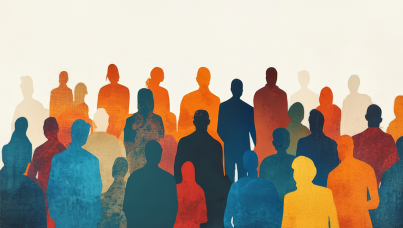Earth Day 2021: “What is the plan to tackle climate change? – Best regards, The Public”
In our new global study, we find that only 31% agree with the belief that their government has a clear plan in place for how government, businesses and people are going to work together to tackle climate change. A third, 34%, disagree.
Even though 2021 is a ‘Super Year’ for international environmental policy, there is low public awareness of the plans surrounding the process - despite their high interest and concern about the environment. This suggests a need for better inclusion and engagement from the public to be part of the solution.
People feel the burden of responsibility
- 72% are agreeing that if ordinary people do not act now to combat climate change they will be failing future generations
- 68% say that if companies do not act to combat climate change then they are failing their employees and customers
- 65% globally believe that if their government does not combat climate change then it is failing citizens.
There are global differences in the belief that governments have a clear plan for tackling climate change. The highest belief is found in Saudi Arabia (64%), China (61%) and India (58%), whereas the lowest belief is found in the United States (18%) and Japan (16%).
Opinions are divided on whether tackling climate change should or should not be a priority in the economic recovery from Covid-19.
- 36% agree that climate change should not be a priority in the economic recovery
- 35% disagree.
Other insights:
- COVID-19 have restricted the public’s ability or willingness to travel by air and car which have a relatively high environmental impact. Our research suggests that the public do not expect that post-pandemic behaviour will revert to less sustainable lifestyles.
- 39% expect to be doing more to avoid food waste once restrictions are removed.
- Around a third expect to travel more on foot or by bike, rather than by car (34%) and a similar proportion expect they will buy only what they really need instead of shopping for fun more often (also 34%).
- Three in ten (31%) say they will be working from home rather than commuting more than they were before the pandemic.
Is there a potential for further behaviour change over the coming year?
- The expectation of making pro-environmental changes over the coming year has changed very little since just before the WHO declared the coronavirus pandemic on 12th March 2020 and remains in line with levels seen in 2014.
- The public show the least intention to change on higher-impact actions such as dietary changes and avoiding flights, though there have been small increases in expectation to change on these measures since 2020.
- The proportion who feel they are already taking as much action as they can is similar to before the full implications of the COVID-19 pandemic hit in early 2020.
About the study
These are the results of a 30-market survey conducted by Ipsos on its Global Advisor online platform.
Ipsos interviewed a total of 21,011 adults aged 18-74 in the United States, Canada, Hong Kong, Israel, Malaysia, South Africa, and Turkey, and 16-74 in 24 other markets between Friday, February 19 and Friday, March 5, 2021.
All nations included in our research have signed the Paris Agreement and almost all have submitted and published initial Nationally Determined Contributions (NDCs) – or plans to tackle climate change. These are due to be updated in 2021, and pushing for these plans to be more ambitious will be a major focus of COP26 in Glasgow.



